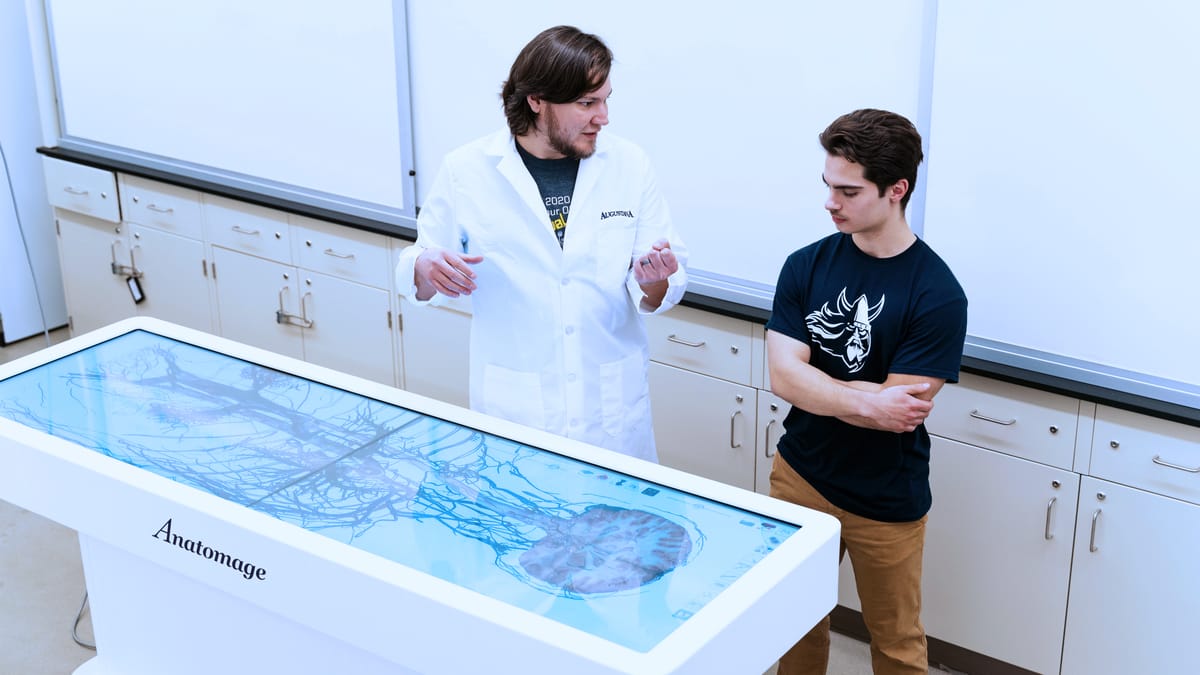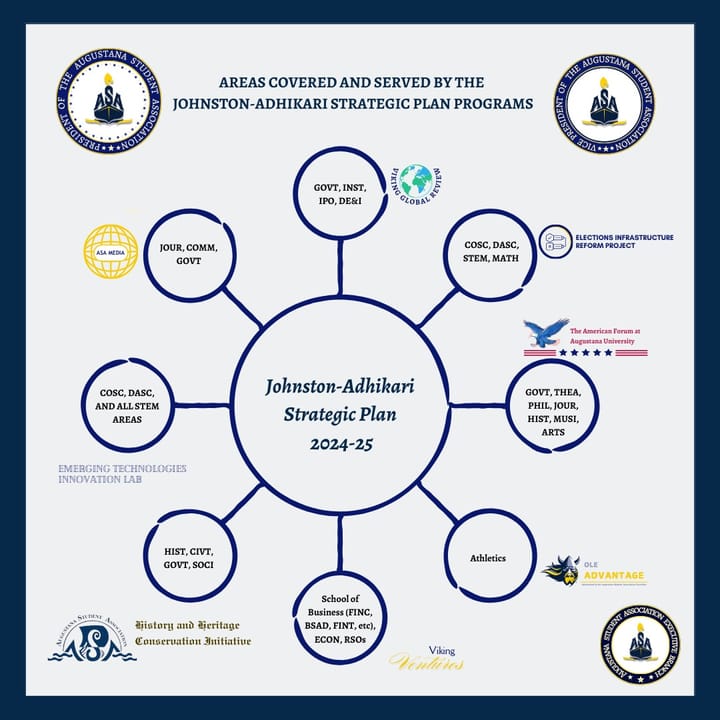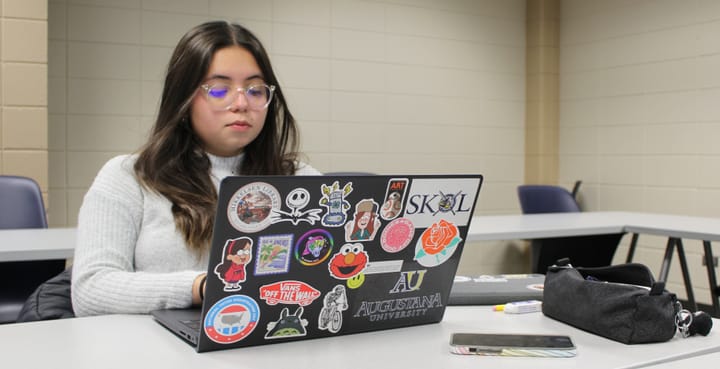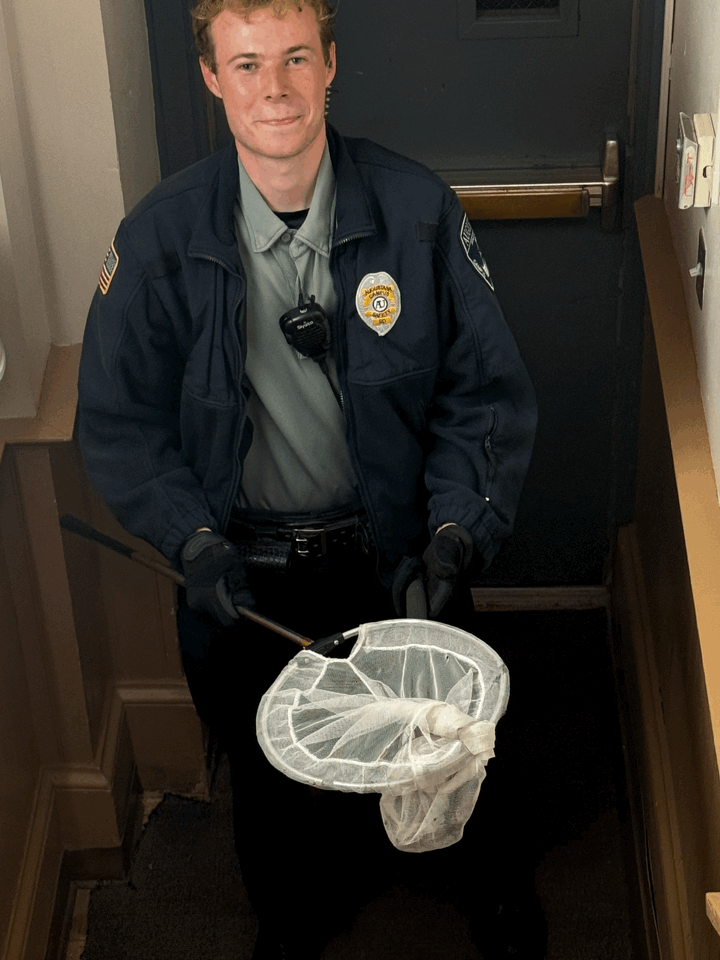Neuroscience upgrades program, builds major

In keeping with a national trend of growth in the field of neuroscience, Augustana began offering a neuroscience major in April of 2024. A neuroscience minor has been available to students since fall of 2021.
The proposal for the addition of the major, written by program director of neuroscience Alexander Kloth, calls neuroscience “an exciting, quickly growing discipline that has begun to transform medical practice and offer scientific inroads to understanding what it means to be human.”
Kloth, who has been an associate professor of biology at Augustana since 2017, has led the neuroscience program since 2022. From his arrival to the university, Kloth has been deeply involved in the development of the neuroscience program; in addition to writing the major proposal, he has also spearheaded the creation of numerous neuroscience-based courses.
The new major requires 50 credit hours, 23 of which are required courses pertaining directly to neuroscience and 15 of which are required supportive courses in the areas of biology, psychology and chemistry.
Students must also take one course in both data science and interdisciplinary studies. The rest of the hours are made of upper-level electives that allow students the ability to pursue their particular interests in the realm of neuroscience.
“We’ve built in a lot of flexibility in the major in terms of courses that students can choose so that they can go whatever direction they’d like to go,” Kloth said.
According to Kloth, a growing interest in neuroscience both locally and nationally prompted the expansion of Augustana’s program. He noted that, over the past 15 years, there has been an “explosion” of such programs in universities across the country.
“We have this opportunity to not only keep up with the Joneses but to do something different and unique that’s going to be attractive to students,” Kloth said.
Provost Joel Johnson echoed Kloth’s sentiment that student demand played a role in the implementation of the new major.
Johnson directed credit for this program’s approval to a number of places, including the core executive team, the undergraduate curriculum council and “faculty champions” for the program. He noted that there is no “ultimate authority” when it comes to program development like this, as it is intentionally designed to be a collaborative effort.
“It’s really all of us,” Johnson said. “It’s a great example of shared governance at work, where it’s not just one person making the decision for everyone else, but it’s [us] as a community recognizing that this is a great opportunity for our students.”
Senior Jenna Skadsen, who began at Augustana with a biology major, has seen the neuroscience program develop during her time on campus. On the advice of professors who saw her interest in the field, Skadsen added a neuroscience minor when it became available to students and recently upgraded that minor to a major.
Skadsen said that her interest in neuroscience is tied to her desire to study the complexities of the brain. She is drawn to understand what is “predetermined” through genetics and environmental factors.
“In a way, neuroscience does kind of tell us about every little aspect of our life because you learn so much about your potential and the things that could be detrimental toward being the best version of yourself,” Skadsen said.
When she graduates, Skadsen intends to pursue a career in research regarding neurodegenerative disease. Because it is a competitive field, she said that it is possible that she will first pursue a master’s in neuroscience to gain experience.
Another senior biology and neuroscience double major, Isha Hooda, found fulfillment in her summer research position in West Virginia – during which she studied the effects of strokes on sleep using mice as a model – and is now considering going into research. She also may pursue her original plan of medicine in the fields of neurosurgery or psychiatry.
“I know when I was in West Virginia, there were a lot of topics that we covered in our journal clubs, and I felt very prepared for those,” Hooda said. “I had already learned about those in class.”
According to both Johnson and Kloth, further development of Augustana’s neuroscience program is likely, but what exactly that development will look like is currently unclear. Both Johnson and Kloth acknowledged the possibility of emphases for neuroscience – including pre-medicine, pre-physical therapy, pre-research or other career-based focuses – but said the program is too new to know what students will need.
“Certainly, we’re open to whatever that next stage of development might be,” Johnson said.



